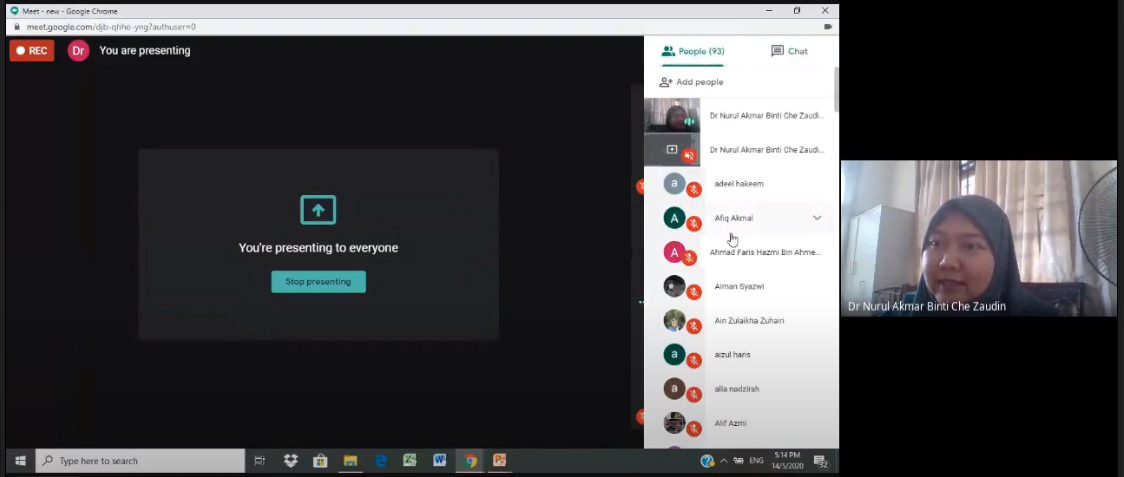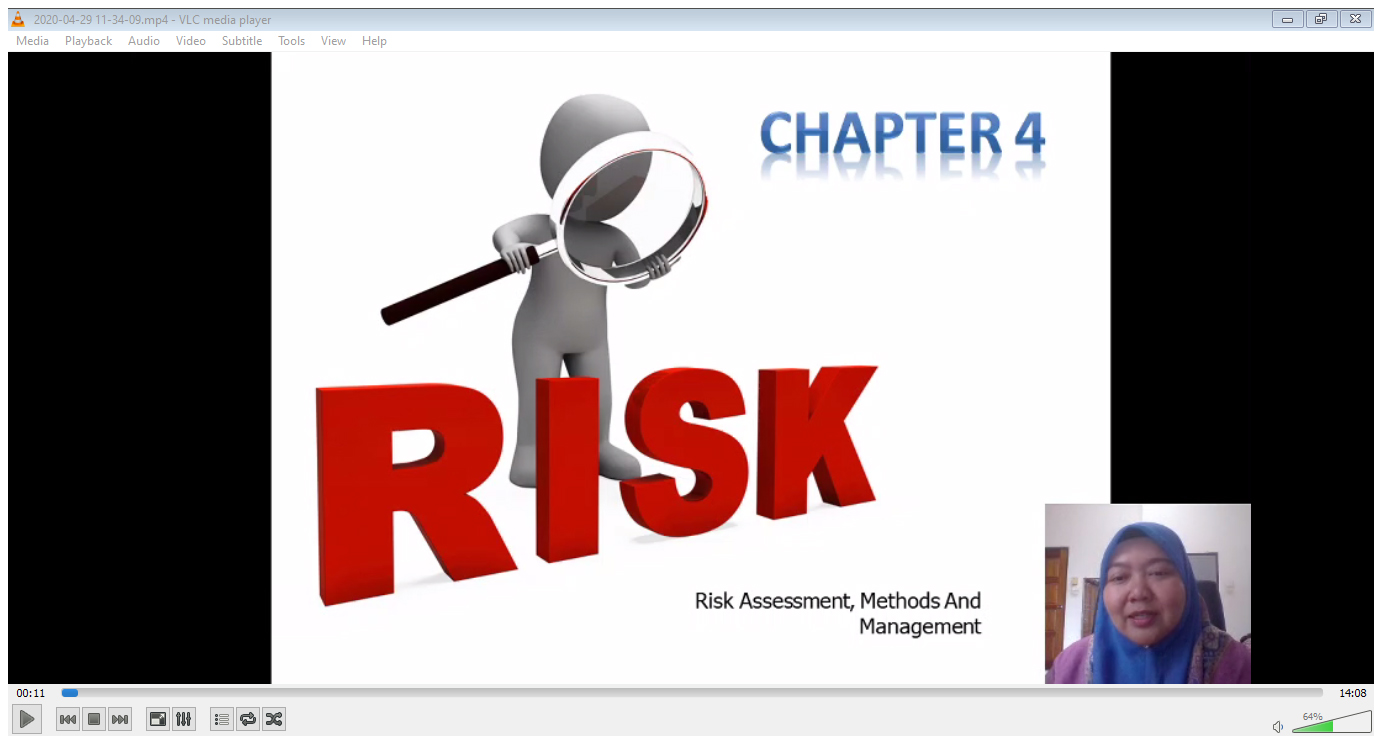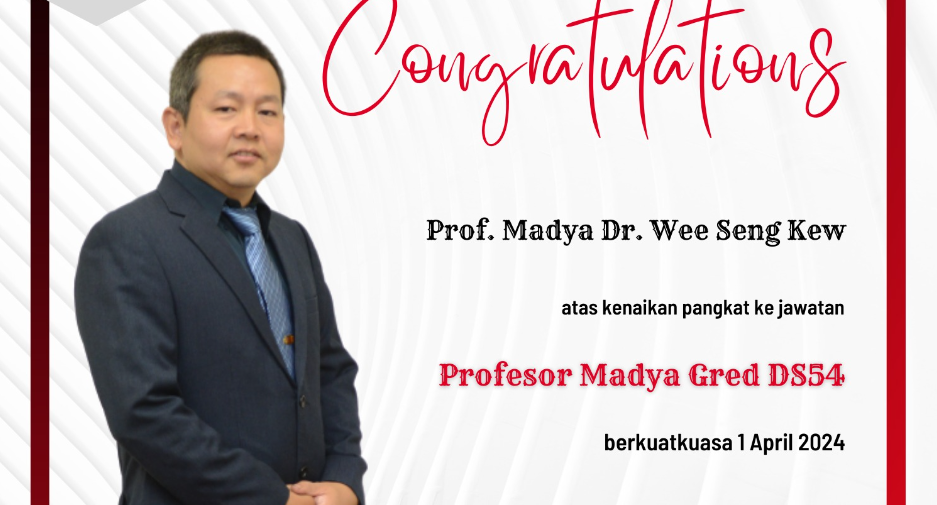CHALLENGES OF ADAPTING A NEW NORM IN TEACHING AND LEARNING
Fighting against an enemy that comes in a sudden is an enormous challenge to an individual or a country, let alone an enemy who is invisible to the naked eyes. The presence of a silent enemy, COVID-19, has caused a new phenomenon that we have never thought could ever happen in our lifetime. Every corner of the globe is working hard to fight this enemy, including our country Malaysia. The uninvited presence of a virus called Coronavirus has shaken the world and changed the usual way we have to lead our lives before.
COVID-19 is an infectious disease caused by a newly discovered Coronavirus in December 2019, and the virus infection continues to this day. Specific vaccines or treatments for the virus are not yet discovered thus cause anxiety and fear in the community as it can lead to death, especially to the elderly and those with underlying chronic medical problems. Concerns about the spread of the infection have led the Malaysian government to announce a Movement Control Order (MCO) nationwide from the 18th of March to the 9th of June 9, 2020. The order aims to prevent and slow down the virus transmission among Malaysians.
All of the higher learning institutions and schools have been closed in compliance with the MCO directive. The closure of the universities has had a tremendous impact on the students and faculty, apart from the management of the university itself. Among the obvious consequences is that the academic schedule of the students is affected and has to be modified according to the MCO period where the students are no longer able to attend classes. Their usual study sessions and research activities in the lab and fieldwork are also to be postponed.
It is a great challenge to all lecturers and students in addressing this new situation and finding a solution to continue the learning process without having to have face to face learning sessions anymore. The most relevant solution at the moment is to conduct online learning and teaching. This method has now become a new normal for national and international educational institutions during the MCO period. This method has long been developed by public universities and mainly being used in the universities area where students and lecturers could use the internet provided by the universities. The most important thing in implementing this method is that both parties, teachers, and students need to have good internet access. However, when our country faces this COVID-19 crisis, all students and lecturers are not allowed to be in universities, but in their own homes where the internet access is minimal and varies according to the places, conditions, and equipment available to students and faculty at the time. Not all students and lecturers are able to perform this online method correctly and entirely because of their limited resources.
For some lecturers who live in low Internet access areas, conducting a lecture online (synchronous method) can be a considerable challenge. Their lectures are often disconnected and interrupted, which causes students and lecturers to lose their focus. Uploading pre-recorded lecture videos for asynchronous methods also takes a long time because of the same problem. However, having the perfect internet access is not the only obstacle to be faced; another challenge is the lack of skills and knowledge in using the appropriate online applications. Computer skills are something that must be trained and learned before they can be used in teaching. It takes a bit of time for these lecturers to prepare themselves before those online applications can be used in their teaching. Currently, almost all lecturers are working from home. Staying home with families and children is also a challenge. Lecturers are easy to lose their focus because of their kids that always want to stay close to them, especially those who are younger and need more attention. This will then disrupt their time and planning while working from home. Maintaining student’s focus and interest in 1-2 hours of online lectures is also not an easy task. Some students are less able to focus on online lectures compared to conventional lectures. Therefore, lecturers need to play a role as educators who can provide dynamic teaching techniques so that students with this issue can stay focused until the end of the lecture.
However, no matter what the challenges and the problems are, we still have to accept the fact that this is a new normal that we need to work through. Every problem that arises must have a solution. Every learning institution strives to ensure their entire students and faculties can conduct a successful teaching and learning session during this pandemic time. The University Malaysia Kelantan has held many online workshop sessions for lecturers to learn about the online applications, conducts the survey on the effectiveness of online learning, regularly request reports from lecturers on any technical issues encountered, provide free reference resources, and many more.
These online teaching and learning methods are still in the process of monitoring and repairing, especially on internet access issues. Improvement will always be carried out continuously. No one can predict the future, and all one has to do now is to adjust to the new norm, always to be positive, and to be proactive in carrying out the responsibilities. The world will never be the same again. May our country remains strong facing this extraordinary crisis.
Article and Photo: Dr Nurul Akmar Binti Che Zaudin






/alumni.png)